- Home
- Clarice Lispector
An Apprenticeship or the Book of Pleasures Page 6
An Apprenticeship or the Book of Pleasures Read online
Page 6
She was falling into a sadness without pain. It wasn’t bad. It was part of life, certainly. The next day she would probably have some joy, also without great ecstasies, just a little joy, and that wasn’t bad either.
That’s how she tried to make peace with the mediocrity of living.
But it was late: she was already yearning for new ecstasies of joy or of pain. What she needed was everything the most human of humans had. Even if it was pain, she’d bear it, unafraid of again wanting to die. She’d bear everything. Provided she was given everything.
No. No one would give it to her. She herself would have to be the one to try to get it. Ill at ease, she kept pacing her apartment, without anywhere she wanted to sit. Her guardian angel had abandoned her. She herself had to be her own guardian.
And she now had a responsibility to be herself. In this world of choices, she seemed to have chosen.
Once again she went to the window: she saw the landscape that was familiar to her by day but strange by night. That high dark and shifting and trembling shadow was the tree that by day would flash sun among its leaves. Now they were quivering in the wind that kept pulling scraps of paper along the curb, making them almost fly. It was windy, and Lóri was afraid that it would rain in the morning and she couldn’t do what she was planning: go to the beach. Though she knew that even if it did rain she would go. She was from Campos, land without sea, and had never managed to get into the habit of going to the beach that was so close to her apartment.
Without noticing, she fell asleep sitting in one of the armchairs. And immediately dreamed that Ulisses that very night was with some other woman. The jealousy woke her with a start. Was she going to suffer that too? Yes, jealousy too, rage too, everything too.
It was still night, she must have just slept for a few minutes. But she didn’t feel tired: she was alert.
So was there some thing you could learn . . . what? She’d gradually find out, no doubt. Lóri wanted to learn, she didn’t know where to start and was also ashamed. The way they had been at the pool and there not only had she figured out the fairylike and at the same time opaque transformation of the sun for the first time, the way she’d felt the world, she was now going to experience the world on her own in order to see what it was like. But this time not at the pool, where she’d find people, but in the sea, at an hour when no one would turn up.
She fell back asleep and this time more deeply for when with a kind of start she awoke it was already light. She looked at the clock: it was ten past five on a clear and limpid morning. The beach would still be deserted and what was she going to learn? She’d go out as if toward the nothing.
She put on her bathing suit and robe, and without breaking her fast walked to the beach. It was so lovely and fresh on the street! Where no one was about, except the milkman’s cart in the distance. She kept walking and looking, looking, looking, seeing. This time it was a bodily wrestling with herself. Dark, wounded, and blind — how to find in this wrestling a diamond that was tiny but fairylike, as fairylike as she imagined pleasures should be. Even if she didn’t find them now, she was aware, her need would not flag. Would she win or lose? But she’d continue her wrestling with life. Not even with her own life, but with life. Something had unlocked within her, at last.
And there it was, the sea.
There was the sea, the most unintelligible of nonhuman existences. And there was the woman, standing, the most unintelligible of living beings. Since the human being had one day asked a question about itself, it had become the most unintelligible of the beings in whom blood circulates. She and the sea.
There could only be a meeting of their mysteries if one surrendered to the other: the surrender of two unknowable worlds done with the trust with which two understandings might surrender to each other.
Lóri was gazing at the sea, that was what she could do. It was only marked off for her by the line of the horizon, that is, by her human incapacity to see the curve of the earth.
It must be six in the morning. The free dog was hesitating on the beach, the black dog. Why is a dog so free? Because he’s the living mystery that doesn’t ask itself questions. The woman hesitates because she’s about to go in.
Her body takes comfort in its own smallness in relation to the vastness of the sea because it is the body’s smallness that lets it become hot and marked-off, and that was making her a poor and free person, with her share of the freedom a dog has in the sands. That body will enter the unlimited cold that roars without rage in the silence of the dawn.
The woman doesn’t realize: but she’s carrying out an act of courage. With the beach empty at this hour, she can’t copy other humans who make going into the sea one of life’s simple lighthearted games. Lóri is alone. The salty sea is not alone because it’s salty and big, and that’s an achievement of Nature. Lóri’s courage is that, not knowing herself, she still presses on, and acting without knowing yourself demands courage.
She enters. The very salty water is so cold that it gives her gooseflesh and mounts a ritual of attack on her legs.
But a fated joy — joy is a matter of fate — already took hold of her, though it doesn’t occur to her to smile. To the contrary, she’s very serious. There’s a dizzying sea smell that stirs her from the sleep of ages.
And now she’s alert, even without thinking, as a fisherman is alert without thinking. The woman is now a compact and a light and a sharp one — and heads through the iciness that, liquid, resists her, and yet lets her enter, as in love where resistance can be a secret request.
Walking slowly her secret courage grows — and suddenly she lets herself be covered by the first wave! The salt, the iodine, all the liquid leave her for a moment blind, dripping — standing shocked, fertilized.
Now that her entire body is drenched and water is pouring from her hair, now the cold becomes frigid. Advancing, she opens the waters of the world down the middle. She no longer needs courage, now she’s an old hand at the ritual abandoned millennia ago. She lowers her head into the sparkle of the sea, and pulls out a head of hair that pours down over salty eyes that burn. She plays with her hand in the water, taking her time, her hair in the sun almost immediately stiffening with salt. With the conch of her hands and the haughtiness of people who never will offer explanations even to themselves: with the conch of her hands full of water, she drinks it in great gulps, good for a body’s health.
And that’s what she’s been missing: the sea inside like the thick liquid of a man.
Now she’s entirely like herself. Her nourished throat tightens with salt, her eyes go red from the drying salt, the waves crash against her and retreat, crash and retreat since she’s a compact barrier.
She dives once again, once again she drinks more water, now no longer greedy since she already knows and already has a rhythm of life in the sea. She’s the lover who is fearless because she knows she’ll have it all again.
The sun comes out more and makes her shiver as it dries her, she dives again: each time less greedy and less sharp. Now she knows what she wants: she wants to stand still in the sea. So she does. As if against the sides of a ship, the water crashes, retreats, crashes, retreats. The woman isn’t receiving transmissions or sending them. She doesn’t need communication.
Then she walks inside the water back to the beach, and the waves push her gently helping her come out. She’s not walking on the waters — ah she’d never do that since walking on the waters had already been done millennia ago — but no one can take this away from her: walking inside the waters. Sometimes the sea resists her exit by pushing her forcefully back, but then the woman’s prow advances a bit harder and rougher.
And now she steps onto the sand. She knows she’s shining with water, and salt and sun. Even if she forgets, she’ll never be able to lose all this. In some obscure way her streaming hair is something from a shipwreck. Because she knows — knows she’s done a danger. A danger
as ancient as human beings.
Lóri had gone from the religion of her childhood to a nonreligion and now had gone to something more ample: she’d reached the point of believing in a God so vast that he was the world with its galaxies: that was what she’d seen the day before when she entered the deserted sea on her own. And because of his impersonal vastness this was a God you couldn’t implore: what you could do was join him and be big too.
To compensate, because when in pain she couldn’t stop imploring, she’d learned from one day to the next to implore herself for mercy and strength, since she wasn’t so vast or impersonal or unreachable. And she’d received enough mercy at least to get her breath back.
Her pain in life had now taken the form of being unable to wait without anguish for Ulisses to call. She herself had only called him a few times.
This time she was even more eager to meet him, she wanted him to know somehow about her dawn dip in the sea. But the phone was silent. And Lóri was afraid that, for lack of communication, she’d forfeit her steps forward.
It was the day the Organization of Primary Schools was throwing their back-to-school cocktail party, at the Museum of Modern Art. She wouldn’t go, she’d wait for a possible call from Ulisses. But the hours passed, and she had a hunch that he wouldn’t call. She remembered that at one cocktail party she’d met a man who became her lover for several months. And she thought maybe she should go to the party to “get herself” another man in order to free herself from the idea of Ulisses.
She felt life once again slipping through her fingers. In her humility she forgot that she herself was a source of life and of creation. So she’d rarely go out, didn’t accept invitations. She wasn’t a woman who always noticed a man’s interest in her unless he told her — then she’d be astonished and accept.
First she called her fortune-telling friend who emboldened her. How could she, a grown woman, be so meek? How did she not realize that lots of men wanted her? How not to realize that she should, within the bounds of her dignity, have a love affair?
— At Maria’s party, the fortune-teller said, I saw you enter the room where you knew everyone. And no one there was, as it happened, remotely equal to you, in educational skills, in intuitive understanding, and even in feminine charm. And yet you entered the room as timidly as if you weren’t there, like a doe with its head down.
— But that’s because . . . , Lóri tried to defend herself, because I feel I’m so . . . so nothing.
— That’s not what the cards say. You need to walk with your head held high, you have to suffer because you’re different from other people — cosmically different, that’s what your cards say, so accept that you can’t have the middle-class life other people do and go to the party today, and walk into the room with your head held high.
— But I haven’t gone out for so long that I’ve forgotten how. And walk into a room full of people all by myself? Wouldn’t it be better if I arranged to go with a girlfriend?
— No. You don’t need company in order to go, you yourself are enough.
What her friend had told her, she thought as she hung up the phone, went well with the new attitude she’d been wanting to have since she’d gone into the sea, no, no, since she’d been at the pool with Ulisses. So, courageously she didn’t arrange to go to the party with any other teacher, male or female — she’d risk it by herself.
She put on a fairly new dress, wanting to be ready to meet some man, but courage didn’t come. So, without understanding what she was doing — she only understood afterward — she put too much makeup on her eyes and mouth until her powder-white face looked like a mask: she was putting someone else on top of herself: that someone was fantastically uninhibited, was vain, was proud of herself. That someone was exactly what she wasn’t.
When it was time to go, she lost her nerve: wasn’t she asking too much of herself? Wasn’t going alone just showing off? All ready, with a painted mask on her face — ah “persona,” how not to use you and be!—discouraged, she sat in the armchair in the living room she knew so well and her heart was asking her not to go. It was as if it foresaw that she was going to get hurt a lot and she wasn’t a masochist. Finally she stubbed out her cigarette-for-courage, got up and went.
It seemed to her that a shy person’s tortures had never been completely described — in the taxi that sped along she was dying a bit.
And suddenly there she was in front of an uncommonly large room with lots of people, perhaps, though it didn’t look like many in the enormous space where like a ritual the cocktail party was unfolding.
How long did she bear it with her head held falsely high? The mask was making her uncomfortable, she knew moreover that she was prettier without makeup. But without makeup it would be the nakedness of soul. And she still couldn’t risk that or allow herself that luxury.
Smiling she talked to one man, smiling she talked to another. But as at all cocktail parties, at this one too conversation was impossible and, when she noticed, she was alone again. She saw two men who had been her lovers, they exchanged vain words. And she saw with pain that she no longer desired them. She’d rather suffer from love than feel indifferent. But she wasn’t indifferent: she was quite moved, she hadn’t seen people for so long. She didn’t know what to do: she wanted to leave like someone who was sobbing. But she kept up her pose and stayed a bit longer.
Until she felt that she could no longer bear to hold her head up, despite the two whiskeys she’d had. But how could she cross the enormous expanse to the door? Alone, like a runaway? She saw she’d reached the impasse of herself. So, with mumbled words, she confessed her drama to one of the other teachers, telling her she didn’t want to leave alone and the girl, understanding her, brought her to the door.
And in the darkness of that night which already had a touch of autumn Lóri was an unhappy woman. Yes, she was different. But yes, she was shy. Yes, she was hypersensitive. Yes, she’d seen two men who had been her lovers and now were just semifriends. The darkness of the autumn night in which the wind blew freshly rocking with delicacy the heavy branches of the trees. The perfume of the night. She had always known how to sense the smell of nature. With some pleasure — the only pleasure of the party — she crossed the . . . Overpass (what was it called?). She finally found a cab in which she sat almost crying tears of relief, remembering that the same thing had happened to her in Paris but worse, since now she was more rooted in the earth.
The way the taxi driver looked at her led her to guess: she was so made-up that he’d probably taken her for a prostitute. “Persona.” Lóri’s memory wasn’t great, that’s why she didn’t know if it was in the ancient Greek or Roman theatre that the actors, before going on stage, would stick on a mask whose expression represented the role they were to express. Lóri was well aware that one of the qualities of an actor was in sensitive changes of facial expression, and that the mask would hide those changes. So why did she like the idea of actors going on stage without their own faces so much? Maybe she thought that the mask was a giving of oneself as important as giving oneself through the pain of the face. Teenagers too, who were all face, as they were living their lives were making their own masks. And with much pain. Because knowing that from then on you’ll be playing a role was a frightening surprise. It was the horrible freedom of not-being. And the moment of decision.
Lóri too was wearing the clown’s mask of excessive makeup. The same one that in the birth pains of adolescence you’d choose so as not to be naked for the rest of the struggle. No, it’s not that it would have been wrong to leave your own face exposed to feeling. But because if that face were naked it could, when injured, close into a sudden mask, involuntary and terrible: so it was less dangerous to choose, before that inevitably happened, to choose on your own to be a “persona.” Choosing your own mask was the first voluntary human act. And solitary. But when you finally buckled on the mask of whatever you’d chosen to play yourself and pl
ay the world, your body would gain a new firmness, your head could sometimes hold itself high like the head of someone who has overcome an obstacle: the person was.
Though something humiliating could still happen. As it was now in the taxi with Lóri. Because, after years of relative success with the mask, suddenly — ah less than suddenly, because of a glance or an overheard word from the driver — suddenly her life’s war mask was being singed like dry mud, and its jagged pieces were falling to the floor with a hollow clap. And there was her face naked now, mature, sensitive when it was no longer meant to be. And the face with its singed mask was crying in silence in order not to die.
She entered her house like a fugitive from the world. There was no point in hiding it: the truth was she didn’t know how to live. It was nice to be home, she looked at herself in the mirror while washing her hands and saw the “persona” buckled to her face. She looked like a dolled-up monkey. Her eyes, under the thick makeup, were tiny and neutral, as if Intelligence had not yet revealed itself in mankind. So she washed her face, and was relieved to have a naked soul again. Then she took a pill to help her sleep and forget how her bravado had failed. Before sleep came, she was alert and promised herself never again to take a risk without protection.
The sleeping pill had started to calm her down. And the unfathomable night of dreams began, vast, levitating.
When two weeks later Ulisses finally called — he never chatted on the phone, just tersely said when and where they’d meet and without asking if she wanted to go — when he finally called to make a date, with the unexpected relief from pain, after hanging up she started crying briefly, more a spasm of happiness than crying.
Then she calmed down and got dressed. She’d take advantage of the day’s unseasonal heat, which would only ruin makeup, to go without any. Without a mask. She was feeling safer for having gone into the sea on her own and was going to see if she’d dare tell Ulisses about her victory.

 The Stream of Life
The Stream of Life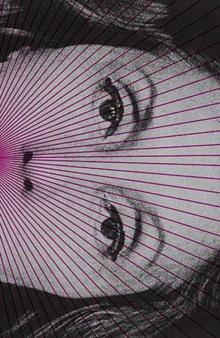 The Complete Stories
The Complete Stories The Hour of the Star
The Hour of the Star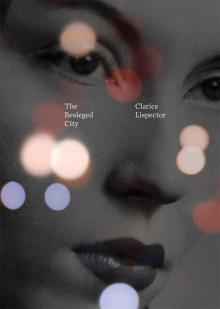 The Besieged City
The Besieged City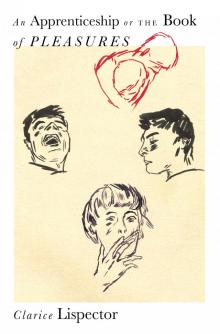 An Apprenticeship or the Book of Pleasures
An Apprenticeship or the Book of Pleasures The Chandelier
The Chandelier A Breath of Life
A Breath of Life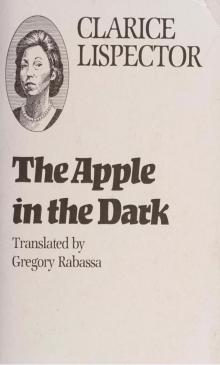 The Apple in the Dark
The Apple in the Dark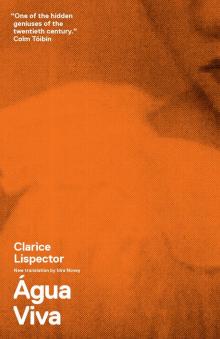 Agua Viva
Agua Viva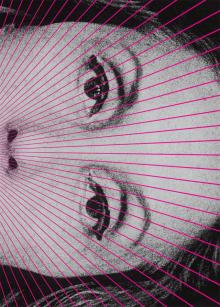 Complete Stories
Complete Stories Near to the Wild Heart
Near to the Wild Heart The Hour of the Star ()
The Hour of the Star ()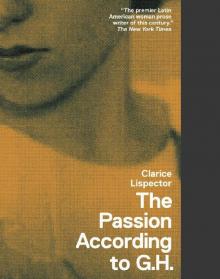 The Passion According to G.H.
The Passion According to G.H. The Passion According to GH
The Passion According to GH